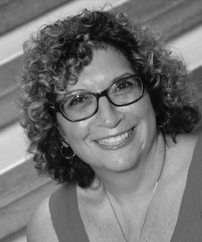
Jodi Rosenshein Atkin is an independent college admissions counselor in private practice, working with students throughout the United States. She provides personalized guidance to students and families throughout the college choice process, helping them find a "best fit" academically, financially and socially. Jodi holds a BA and MA in psychology from the University of Rochester. She is a Professional Member of the Independent Educational Consultants Association and has been featured in national and local publications, including the Wall Street Journal, Teen Vogue, and the Rochester Business Journal.
As your children and grandchildren prepare to make one of the most significant choices of their lives, there are many things to consider. We’ve compiled five of the most frequently asked questions that come up during the college search. We hope that you and your loved ones find these questions thought-provoking and help spark a discussion on the best college choice —even if being a college student may look different right now than it usually does.
-
How do I narrow down which colleges to consider?
When I talk to clients about creating their preferred college list, we focus our discussion on academic, social, geographic, and financial factors. Start by making a list of your academic interests and extracurricular activities. What are your intellectual curiosities? What extracurricular activities have been most meaningful? What things have you always wanted to explore? Make sure the schools you are considering offer the types of programs, as well as social activities, that you may want to get involved in. There's no point in spending a lot of time looking at a school that doesn't offer classes in the visual arts if you are considering studying art. The same goes for activities. If you think you might want to get involved in Greek life, you can ignore any schools that don't have sororities and fraternities on campus.
Geography is another factor to consider. Even if campuses are closed currently, you’ll need to move to attend in-person classes when they reopen. A school’s convenience goes beyond where it's located on a map. Many schools located near large airports can be relatively quick and easy to get to. A school with no transportation options other than hours of driving can be more of a hassle to get to than many students realize. A five hour drive from home may seem close, but if the only way to get from where you are to where you want to go is by car—no plane, train, or bus routes available—students are either going to need to take a car to school, or the parent is looking at a ten hour drive to pick them up and bring them back for Thanksgiving dinner!
Lastly, don’t fall in love with a school that you cannot afford. Every college has a net price calculator online. It is required by law. Fill it out. The tool will give you an estimate of the financial aid a student like yours can expect. It is based on grades, test scores, and family income. Read the results carefully to determine how much of the total cost will be offset by grants, scholarships, and work-study.
-
Should I concentrate on applying to the most elite colleges I can find?
No, and this is particularly true if you are seeking merit-based financial aid. Those awards can be used to attract students who add to the school’s academic and extracurricular culture. If you are roughly in the top third of the applicant pool, you have a better chance of receiving merit-based aid. In addition, the hardest place to get into is not necessarily the best place to be. I prefer students not refer to certain colleges as reach schools. What exactly are you reaching for? Being in an environment that will not support the student’s academic needs can make the goal of a bachelor’s degree feel more like a four-year ride on a struggle bus!
Higher education is more about the experience of the student than the brand name of the college. Getting in is only the first step. Staying in and finishing on time are the true measure of success. Will simply being on an Ivy League campus really help you reach your full potential? Or will it only look good on your sweatshirt and raise your anxiety levels? What is the likelihood you would have necessary access to internships, research, and faculty support? The first thing to consider in choosing potential colleges is your wants and needs. In the end, the only name that really matters on a diploma is yours.
-
What if I don't know what I want to major in?
It's okay to not know what you want to major in when applying to college. The vast majority of subjects offered in colleges and universities are ones that high school students may have never heard of. It is also okay to not know what you want to be when you apply to college. Given the rapidly changing labor market, it is estimated that 65% or more of the jobs that will be available in the next five years do not currently exist today! Many students are fixated on figuring out what they want to major in or what career they are going to pursue.
Consider a different approach. What are the questions you are interested in answering? What are some problems you are interested in solving? What are you curious about? The reality is that you will almost certainly find interesting subjects that have not even occurred to you as you're applying. If you don't have a major in mind, do the research and be sure the schools you are exploring offer enough opportunity once you get there.
-
How do I avoid making a mistake and picking the wrong college?
The college choice should be a mutual one. It is a pairing that should be voluntary and agreed upon by both parties. Contrary to experiences in gym class, being chosen does not obligate you to join that team. Applying to a school regular decision does not bind you. It does not require you to attend. It is important to consider what aspects of college life will be most important to you. For example, if your exercise regime is focused on turning the pages of a book, all the fitness facilities in the world don’t matter to you. Instead, make sure the library has windows and comfy chairs. If you find you focus best in small, discussion-based learning settings, then you should avoid choosing a school where you’ll be in lectures with hundreds of other students. At the end of the day, picking a college is like going on a date. A school wants to be chosen as much as the student does. The application process is a courtship for everyone, and a successful process means reciprocal enthusiasm from both you and the school.
-
What is the best way for a “normal” student to get into a good college?
The average admission rate for four-year colleges is approximately 65%. Unfortunately, students and the media seem to primarily focus on schools whose admission rates hover around 10% or less. There are only a dozen or so schools in the country that are that selective. The reality is that most schools admit the majority of applicants. There is also a shrinking population of high school students, and that demographic is expected to decline for the foreseeable future. Schools are looking for students just as much as students are looking for schools. There are scholarships, honors programs, and other opportunities that highlight what types of students a campus may be seeking. By researching and pursuing all available opportunities, you will make it easier for colleges to find exactly what they are looking for – you.
Interested or know someone who can benefit from an independent college admissions counselor? Contact Jodi Atkin at Jodiatkin@gmail.com or visit www.bestfitcollegechoice.com.
Watch our recent webinar with Jodi Atkin on-demand
Navigating the college application process is challenging under normal circumstances – add a pandemic into the mix and it’s enough to make your head spin. Watch our webinar with Jodi Atkin as she discusses strategies to navigate the college application process.
You can also read more articles like this in our third edition of Prosper, our financial planning magazine. We address a diverse range of topics, including retirement planning, investment themes, estate planning, recent legislation, taxes, and so much more.
Consult with an attorney or a tax or financial advisor regarding your specific legal, tax, estate planning, or financial situation. The information in this paper is not intended as legal or tax advice.



